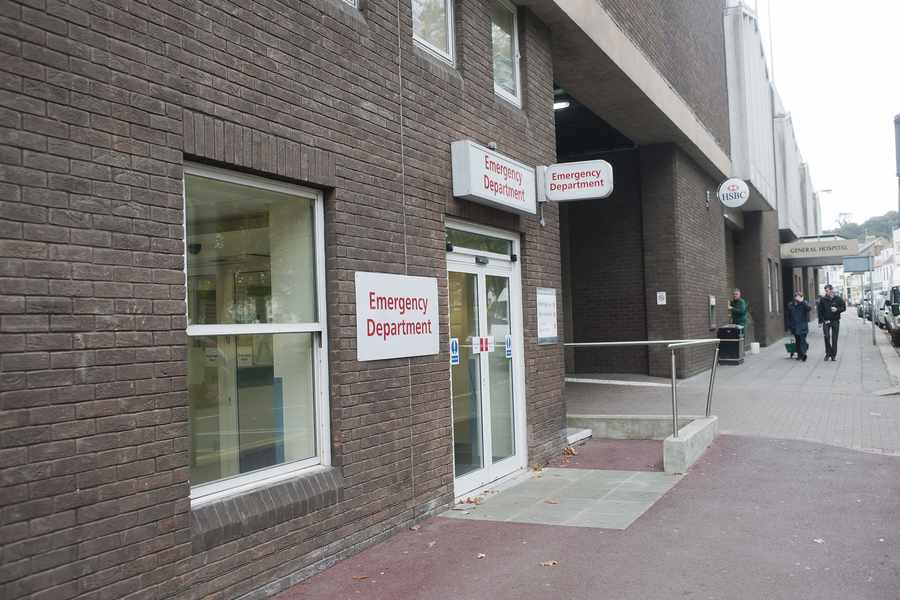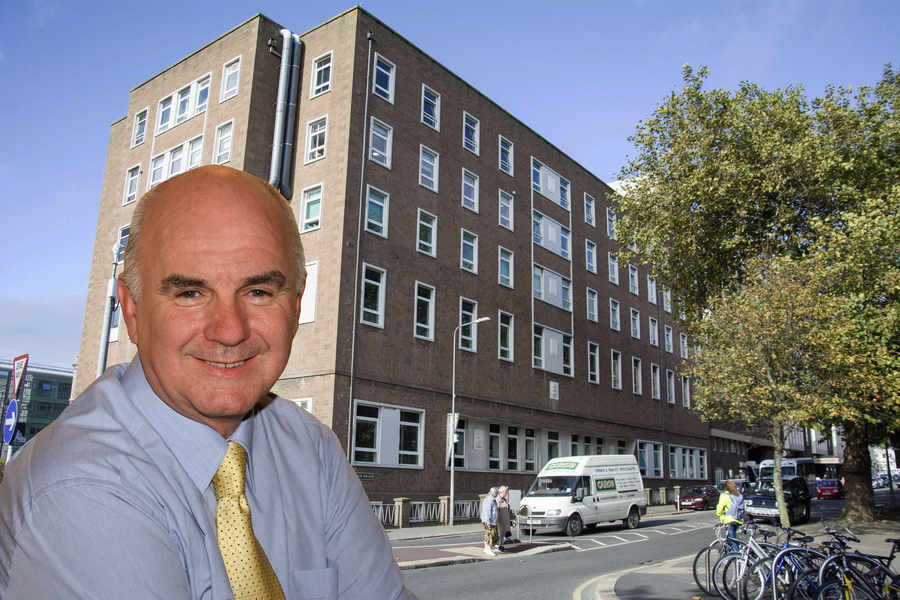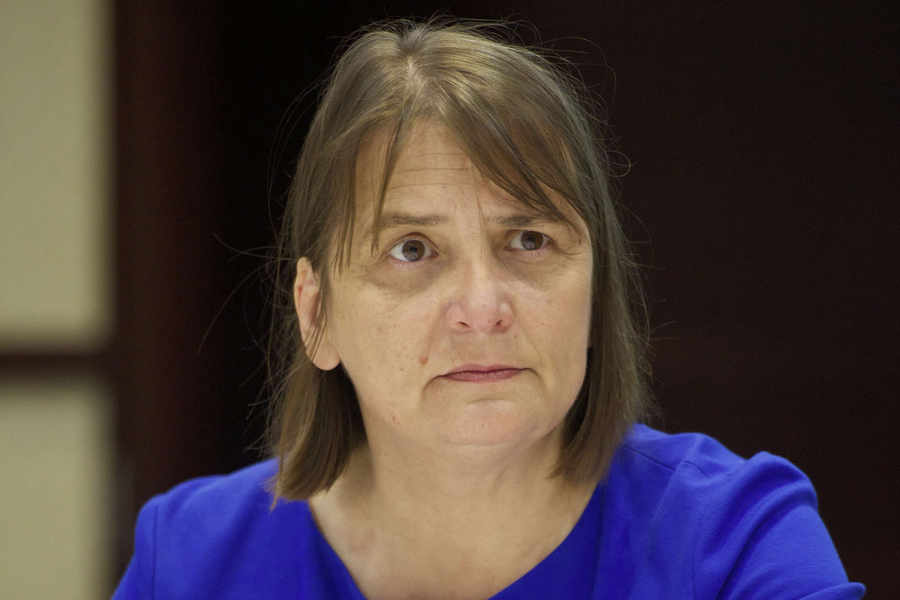Speaking in the States on Tuesday Senator Green said that the idea of introducing a treatment fee for self-inflicted conditions involving drink or drugs was ‘fraught with problems’.

Responding to a question from Deputy David Johnson about the possibility of introducing such a charge, the minister said that the Island did not have a ‘big problem’ with people coming into the hospital at the weekend after becoming intoxicated.
He said: ‘We are there to treat anybody who reports to A&E, irrespective of their ailment. We are not their to judge – every patient must be assessed on their clinical need.’
‘The concept of charging patients with self-inflicted conditions is fraught with problems. For example, would we charge the short of breath patient who is a smoker, or the heart attack patient who eats unhealthy foods or the obese patient who fails to take medical advice?
‘The problem is once you start to look at different reasons for treating people differently, they would not be fulfilling their oath as a doctor.’
He added: ‘One thing I won’t tolerate is abuse of staff – we should not have abusive behaviour.’

Later in the sitting, answering a question from Deputy Geoff Southern about the number of people attending Accident & Emergency instead of going to their GP, the minister admitted that there was a problem, but that it was not as severe as in the UK.
‘While there is no doubt that we do have people in Jersey attending A&E that would be better placed attending their GP, I have to say we do not have the problem that other departments have in the UK where departments have been practically brought to their knees by people attending who should not be there.’
CHIEF Minister Ian Gorst has pledged to consider evidence about the benefits of introducing a living wage – defined as the minimum income needed to sustain a basic but acceptable standard of living.
A branch of the Living Wage Foundation campaign group is due to be set up in the Island, and on Tuesday supporter Deputy Andrew Lewis asked Senator Gorst whether he would be prepared to recommend to the Council of Ministers that the States sign up with the foundation.

During question time, Deputy Lewis asked: ‘Once the value of a living wage for Jersey has been calculated and the Living Wage Foundation established in Jersey, would the minister be prepared to recommend to the Council of Ministers that the States become an accredited member of the Living Wage Foundation and thus ensure that all employees, in particular the employees of sub-contractors, are paid a living wage?’
The Chief Minister reminded Deputy Lewis that a recent report found that Jersey’s minimum wage combined with Income Support was enough to meet the requirements of a living wage, but explained that he and other ministers would consider any new evidence put before them.
Following Deputy Lewis’s question, Senator Gorst said: ‘The living wage report recently produced by Social Security found that Jersey’s minimum wage and Income Support already satisfied the requirements of a living wage. The States already pay a fair wage to their employees. It would, of course, be premature to sign up to the Living Wage Foundation scheme that does not yet exist in Jersey, but ministers would consider the evidence put before them in due course.’
Senator Gorst said it may be better to work with the States Employment Forum to look at the level of the minimum wage. ‘The best way to deal with some of the issues raised is through the minimum wage,’ he added.
CHIEF Minister Ian Gorst again refused to divulge further details as to why former Treasurer Laura Rowley was given a pay-out of £169,000 after she stood down from her post last July.

During States question time, Deputy Montfort Tadier asked under what circumstances a public employee who voluntarily resigned from their post – for example, to spend time with their family – would be entitled to financial compensation.
As reported last week, the one-off payment was listed in the States annual report and accounts, but both Senator Gorst and Treasury Minister Alan Maclean have said that it was not a ‘golden handshake’ and that the payment was a requirement of Ms Rowley’s contract.
In response to Deputy Tadier’s question on Tuesday, the Chief Minister said that employees left their jobs ‘all the time, for a variety of reasons’ and that the States had to comply with its contractual and legal obligations. He said that policies and codes had been reviewed by the previous Comptroller and Auditor General and would now be reviewed again, in order to limit payments ‘of such large sums’.
By Christine Herbert

I DO love a good protest – it reminds me that we live in a democracy. The 80 or so good-natured souls who held up their posters the States Members’ entrance yesterday morning to object to the new International Finance Centre development seemed to have little faith that their stance would change the stony hearts of their elected representatives – but at least they cared enough to be there.
Unfortunately that brief moment of political exuberance failed to penetrate the thick walls of the Chamber. All too soon we were back on the hamster wheel of oral questions and initial pre-prepared answers, followed by successive attempts to extract the ‘real’ truth from the minister in the spotlight. I longed to tell the steady trickle of visitors to the public gallery that the Assembly does (sometimes) put on a better performance.
There was some light relief, albeit later in the morning, during questions ‘without notice’. This is the moment when two ministers are put on the spot for 15 minutes, with no idea of what they will be asked and thus no time to pre-prepare evasive answers. There’s never a shortage of questions for Transport and Technical Services Minister Eddie Noel, who deals with all those practical problems like waste, sewage and roads.
This time he was caught on the hop over the simple matter of temporary traffic lights at the particularly dangerous junction of Plat Douet Road, Rue St Thomas and Longueville Road. St Saviour Deputy Peter McLinton had asked, rather eloquently I thought, what had happened to the plans for the lights. ‘Will the minister PLEASE make a commitment,’ he pleaded, to which Our Eddie replied that he was ‘waiting to hear from the Parish’.
Several questions later – including one about the ‘plant nut’ from St Brelade, and another on the take-up of Avanchi bus passes – St Saviour Constable Sadie Rennard finally got her question in: Regarding Longueville Road, when exactly did the minister ask the Parish for money, as she had no record of this – and was Deputy Noel ‘passing the buck’?
Not realising he’d been had, the Transport Minister replied that there was ‘no specific sum’, and he did not know which officer had been asked. To which the St Saviour Constable, quite rightly, asked whether the minister was ‘blaming the Parish for a breakdown in communication’ – which got St Clement Constable Len Norman wondering whether TTS could in future assist all the parishes with their roads.
1 – tribunal case against employer for paying less than the minimum wage
15 – number of States homes sold each year
153 – prisoners currently held at La Moye
100 – parents who could temporarily lose benefits unless they seek work under proposed new rules
‘At the end of the day most people are paying more, and that’s not what they voted for.’
Deputy Montfort Tadier questioning user-pays charges.
‘It is deemed that the level of minimum wage plus benefit in Jersey would equate to what might be considered the living wage in London.’
Social Security Minister Susie Pinel regarding the living wage.
‘What kind of message does that send to the 7,000 States employees who are being asked to give up their jobs voluntarily?’
Deputy Montfort Tadier regarding the payment made to former States Treasurer Laura Rowley when she resigned last year.
‘Should the Island adopt a level of the living wage, it is appropriate that the government in particular encourages the use of the living wage and that this government will lead the way by ensuring that it does not engage with issuing contracts and tenders with companies that do not pay the living wage.’






